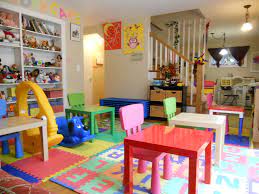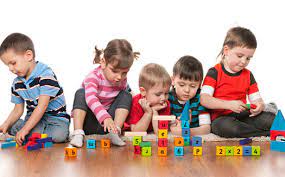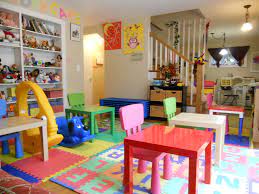A Kindergarten Feasibility Study serves as a comprehensive roadmap that outlines the necessary steps and pathways to establish a successful early childhood education project. This study focuses on conducting a detailed market analysis to understand the needs of children and parents, as well as identifying the demand for kindergarten services. In addition, it includes a thorough financial feasibility assessment to determine the costs of establishment and operation, expected revenues, and to estimate the project’s potential profitability. The study also incorporates effective marketing plans to attract potential clients, such as identifying appropriate promotion and pricing strategies aligned with market capabilities. Furthermore, the study outlines a comprehensive operational plan that covers curriculum design, selection of qualified teaching staff, and equipping the kindergarten with the latest educational tools to ensure the delivery of high-quality educational services. Moreover, the feasibility study aims to identify available opportunities and potential challenges that the project may face, which supports informed decision-making to successfully launch the kindergarten.

The kindergarten project is an educational institution dedicated to providing learning and care services for children aged 3 to 6 years. The project focuses on developing children’s academic, social, and emotional skills to build a strong foundation for their growth through a comprehensive educational curriculum that blends learning with recreational activities. This approach fosters a love of learning and creativity in children.
The project offers a safe and stimulating environment that encourages children to explore and engage positively, supported by a qualified teaching team with the necessary experience to deliver high-quality education and care. The kindergarten is equipped with the latest educational tools and modern technologies, along with dedicated spaces for play and interactive activities that support the development of children’s motor and social skills.
The project features a variety of programs covering basic language and mathematics, in addition to activities that promote creativity and life skills. It also emphasizes instilling ethical values and positive behavior, preparing children for a smooth transition to the next stages of education.
In conclusion, a kindergarten feasibility study is the key to ensuring the success of this project—so request yours now from Mashroo3k.



Developing basic skills such as reading, writing, and arithmetic in enjoyable ways.
Providing a safe and stimulating educational environment for children.
Learning through play to enhance participation and fun.
Developing social skills and communication among children.
Fostering creativity through artistic activities.
Teaching values and positive behaviors.
Encouraging physical development through sports activities.
Involving parents in monitoring the child’s progress and education.
Executive summary
Study project services/products
Market Size Analysis.

Saudi Arabia is the highest spender on education among the Gulf Cooperation Council (GCC) countries, allocating nearly 25% of its general budget to the education sector.
The total allocation for education in Saudi Arabia for the fiscal year 1437/1438 AH was 211,836 million Riyals.
The total number of students in Saudi Arabia across the primary, intermediate, and secondary education stages reached 7,277,317, which represents 22% of the country’s population.
The total number of students in the primary education stage was 3,734,692 in 2016, with male students making up 51% of this number.
The total number of students in the intermediate education stage was 1,682,509, with male students representing 51.8% of the total.
The total number of students in the secondary education stage was 1,860,116, with male students representing 51.7% of the total.
The regions of Makkah and Riyadh together account for 48% of the total student population in Saudi Arabia in 2016, with 27.9% in the Makkah region and 20.1% in the Riyadh region.

The investment in the private education sector in Saudi Arabia grew by 3% in 2016, reaching 15.5% compared to 12.5% in 2015.
Over the past five years, investment in the private education sector has increased, with the total investment reaching approximately 10 billion SAR.